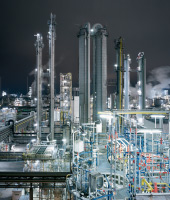Dear Shareholders,

Dr. Peter-Alexander Wacker
Chairman of the Supervisory Board
of Wacker Chemie AG
WACKER ended its centennial year of 2014 with good sales and earnings figures.
After two difficult business years – in which we lost more than € 1 billion in sales, mainly due to massive polysilicon and semiconductor-wafer price declines – we were able to post substantial growth again in 2014. Our ambitious efficiency program played a major part in this success by enabling us to save € 440 million in costs over two years. With great discipline, we achieved all our cost targets and were able to profit from these efforts even when only small improvements occurred in the underlying conditions. This particularly applies to our polysilicon business. What is more, lower oil prices and a weaker euro boosted our business in the fourth quarter of 2014. Special income from advance payments retained and damages received from solar-sector customers also had a positive impact.
Siltronic’s acquisition of a majority stake in the joint venture with Samsung proved to be the right strategic move, enabling the division to expand its production in the high-growth segment for 300 mm silicon wafers and consolidate its position in Asia, its most important market.
This success was largely attributable to WACKER’s employees, whose ability to perform, outstanding expertise and high levels of commitment were major contributing factors to this postive trend. The Supervisory Board of Wacker Chemie AG thanks them for their achievement.
Fiscal 2015 could prove to be another successful year for WACKER. However, we see three factors beyond our influence that could severely impede economic growth.
These are the uncertainties surrounding the Ukraine conflict, the development of the euro, and a possible economic slow-down in China. In the future, market fluctuations are very likely to become more pronounced, which is why we are staying alert.
When it comes to the factors that we can influence ourselves, we remain optimistic about WACKER’s future. We have succeeded in expanding our market position in all of our business segments. This shows us that we have products of recognized high quality and can serve customers in almost every key branch of industry across the globe. What is more, our technological expertise and innovative strength put us in a position to develop new applications for our products and find solutions for the megatrends that will define the next few decades.
For WACKER, 2015 will be a special year. At the end of the year, we intend to start polysilicon production at our newest site in Charleston, Tennessee (USA). This, the biggest single investment in the company’s history, is the starting point for establishing an integrated production site in the world’s second-largest chemical market. The conclusion of this investment project will mark a major milestone of having integrated production plants in all of our key regions around the world. That will be of the utmost importance for our strategy of ongoing expansion.
Continuous Dialogue with the Executive Board
At WACKER, sound corporate governance and control are built on a relationship of trust between the Executive Board and Supervisory Board as they work closely together in the company’s interest. In 2014, the Supervisory Board performed – with great diligence – the duties incumbent upon it under the law, the Articles of Association, and the internal rules of procedure. The Supervisory Board was involved at an early stage in every decision of fundamental significance for the company.
In both written and verbal reports, the Executive Board regularly provided us with timely and comprehensive information on corporate planning, strategic development, business operations, and the current state of Wacker Chemie AG and the Group, including the risk situation. Outside of the scheduled Supervisory Board meetings, the Chairman of the Supervisory Board also remained in close contact with the Executive Board, especially with the CEO, and was kept informed of the business situation, current trends and key business transactions. Any deviations from business plans and targets were explained to us in detail.
Wherever required by statutory provisions or the Articles of Association, the Supervisory Board voted on the reports and proposals of the Executive Board after detailed examination and discussion.
In the reporting year, we paid particularly close attention to investment projects, the current earnings situation, including the risk position and risk management, and the company’s liquidity and financial position.
The Supervisory Board held four meetings in 2014, two in the first half of the year and two in the second. Between meetings, the Executive Board immediately informed us in detail by means of written reports about all projects and plans of particular importance to the Group. At its full meetings and in its committees, the Supervisory Board discussed in detail business transactions important to the company on the basis of the reports submitted by the Executive Board. The full meetings were prepared by shareholder and employee representatives in their own separate sessions. With the exception of Dr. Bernd W. Voss, who was unable to attend for personal reasons, every Supervisory Board member attended at least half of the meetings held in the reporting period during their term of office.
The Supervisory Board’s Main Areas of Deliberation
The development of sales, earnings and employment at the Group and its individual segments were the subject of regular deliberations in the full meetings. At each meeting, the Supervisory Board evaluated the Executive Board’s performance – on the basis of Executive Board reports – and discussed strategic development opportunities and other key topics with the Executive Board. There was no need for additional monitoring measures, such as the inspection of corporate documents or the appointment of experts.
Major areas of deliberation dealt with by the Supervisory Board were:
- The anti-dumping proceedings against the solar industry in the USA, EU and China; their impact on WACKER; and corresponding courses of action
- The market-price level of polysilicon, demand fluctuations in this segment, and the consequences for WACKER
- Progress with constructing the polysilicon production site at Charleston, Tennessee (USA)
- The acquisition of a majority stake in, and financing of, our Singapore-based joint venture with Samsung
- Developments in the semiconductor industry
- Acquisition and integration in the Group of the SCIL company of Halle, Germany
- Performance of the share price
- Group financing measures
The Supervisory Board discussed the WACKER Group’s plans for fiscal 2015 at its meeting of December 11, 2014. On that occasion, the Supervisory Board also dealt with medium-term corporate plans for 2015 to 2019, and discussed and approved the capital expenditure budget for 2015.
Work in the Committees
The Supervisory Board is assisted in its work by the committees it has constituted. WACKER’s Supervisory Board has created three committees – an Audit Committee, an Executive Committee, and a Mediation Committee (as per the German Co-Determination Act (MitbestG), Section 27, Subsection 3). With the exception of the Audit Committee, which is chaired by Dr. Bernd W. Voss, the Chairman of the Supervisory Board chairs the committees. For personal reasons, Dr. Voss was unable to perform this task in 2014. Therefore, the Supervisory Board elected Franz-Josef Kortüm, an independent Supervisory Board member, to stand in for Dr. Voss on the Audit Committee and to act as that committee’s chairman.
The Audit Committee met four times last year. Key aspects of its work included the audit of the annual financial statements of Wacker Chemie AG and the Group for 2013, and of the consolidated interim financial statements for the first half-year. It also discussed the consolidated quarterly reports and issues relating to risk management, compliance and auditing. Additionally, the Audit Committee awarded the auditing contract (including the focus of auditing) to the chosen auditors and submitted a proposal for the choice of auditors for 2014 to the full Supervisory Board.
The Executive Committee convened twice in fiscal 2014, of which once by conference call. The committee’s discussions centered around personnel matters related to the Executive Board (compensation, goals and employment contracts) and the Supervisory Board (proposal of Dr. Andreas Biagosch as new Supervisory Board member).
The Mediation Committee did not need to be convened last year.
The Supervisory Board was regularly informed about the committees’ work.
Corporate Governance
Last year, the Supervisory Board again looked closely at corporate-governance standards. At its meeting of December 11, 2014, the Supervisory Board discussed the application of the German Corporate Governance Code and adopted the annual Declaration of Conformity that must be submitted jointly by the Executive and Supervisory Boards in accordance with Section 161 of the German Stock Corporation Act (AktG). Shareholders can access the Declaration on the company’s website.
In its Corporate Governance Report, the Executive Board provides details – also on behalf of the Supervisory Board – on corporate governance at WACKER in accordance with Item 3.10 of the German Corporate Governance Code.
At its meeting in December 2014, the Supervisory Board also discussed the efficiency of its activities and found that it works efficiently – one reason being the regular preliminary discussions regarding the Supervisory Board meetings.
Audit of the Annual Financial Statements of Wacker Chemie AG and the WACKER Group
KPMG AG Wirtschaftsprüfungsgesellschaft, Munich, audited the annual financial statements of Wacker Chemie AG for fiscal 2014, the consolidated financial statements and the combined management report (as of December 31, 2014), as prepared by the Executive Board, including the relevant accounts.
The Supervisory Board’s Audit Committee had awarded the auditing contract in accordance with the resolution of the annual shareholders’ meeting of May 15, 2014. The auditors issued an unqualified audit report.
The auditors also examined the risk management system in accordance with Section 91 of the German Stock Corporation Act (AktG). The audit verified that the risk management system meets the legal requirements. No risks endangering the continued existence of the company were identified. The financial-statement documents (including the auditors’ reports, the combined management report and the Executive Board’s proposal for the distribution of profits) were submitted to all the Supervisory Board members in good time.
At its meeting of March 2, 2015, the Audit Committee closely examined the aforementioned financial statements and reports, as well as the auditors’ reports on the separate and consolidated financial statements, and discussed and examined them in detail with the auditors before reporting to the full Supervisory Board. At its meeting of March 10, 2015, the full Supervisory Board closely examined and discussed the relevant annual accounting documents with knowledge and in consideration of both the report of the Audit Committee and the auditors’ reports. At both meetings, the auditors took part in the deliberations. They reported on the main results of the audit and were available to the Audit Committee and the full Supervisory Board to answer questions and provide supplementary information.
After concluding our own examination, we found no grounds for disputing the annual financial statements of Wacker Chemie AG, the consolidated financial statements or the combined management report, or the auditors’ reports.
We therefore approve the annual financial statements of Wacker Chemie AG and the consolidated financial statements as of December 31, 2014 as prepared by the Executive Board. The annual financial statements of Wacker Chemie AG are hereby adopted. We concur with the Executive Board’s proposal for the distribution of retained profits.
Changes in the Composition of the Supervisory and Executive Boards
Dr. Bernd W. Voss, a longstanding member of the Supervisory Board, stepped down effective December 31, 2014. We thank him for his valuable and beneficial support over the years and wish him all the best. He was succeeded by Dr. Andreas Biagosch, who was appointed to the Supervisory Board by court order effective January 26, 2015.
There were no changes in the Executive Board in fiscal 2014.
The Supervisory Board expresses its thanks to the Executive Board and to the company’s employees and employee representatives. Their efforts have helped achieve another successful year for Wacker Chemie AG.
Munich, March 10, 2015
The Supervisory Board
Dr. Peter-Alexander Wacker
Chairman of the Supervisory Board of Wacker Chemie AG



